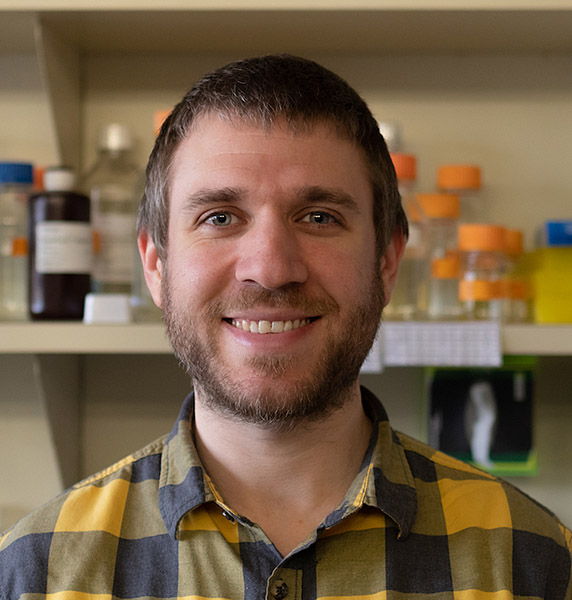
Field research provided inspiration, path to career in DNA research for BCMB major

A field research opportunity in Mexico the summer after his freshman year turned out to be the dawning of a rewarding journey into biochemistry and molecular biology, a field that Eric Sullivan ’11 never envisioned entering before coming to Wooster.
The trip, led by Lynn Loveless, former associate professor of biology, prompted Sullivan to declare a major in biochemistry and molecular biology – much different from the political science major he initially considered.
“We spent weeks studying a desert growing shrub and it’s interaction with pollinators. I met colleagues from a university in Hermosillo, Mexico, and we spent a decent amount of time living out of tents,” recalled Sullivan. This opportunity to partake in hands-on research and meet professionals in the biochemistry and molecular biology field ultimately swayed Sullivan to the sciences.
“My time at Wooster changed the trajectory of my professional life in a positive way. Without the opportunities and caring, thoughtful mentorship I received at Wooster I do not believe I would have gone on to pursue a higher degree and this type of work,” he said. “Wooster taught me how to think critically and approach complex problems … (and it’s) emphasis on writing has proven beneficial.”
Independent Study, above all else, helped Sullivan hone those skills, which he still uses on a regular basis. With guidance from I.S. advisor Mark Snider, the Robert E. Wilson Professor of Chemistry and BCMB, and his “passion for enzymology that was contagious,” Sullivan was inspired, and prepared, to pursue a higher degree. “I think I.S. put me at a bit of an advantage in graduate school, as it wasn’t much of a shock to me when we were expected to begin designing experiments and analyzing novel data.”
Sullivan earned a Ph.D. at the University of Michigan, studying protein post-transitional modification, and today he is a postdoctoral fellow at the National Institute of Environmental Health Sciences. He is studying DNA replication in the human mitochondrial genetics, specifically how “the nuclear genome and mitochondrial genome … are organized and replicated in fundamentally different ways and by different proteins.” He further explained “my focus is on understanding the enzymology of the mitochondrial replisome. How do these proteins work together, and how do they respond to challenges during replication?”
Sullivan’s time at the College was fortuitous, leading him not only to an unexpected choice in major and ensuing professional career, all thanks to the research and mentorship opportunities offered to every student at Wooster.
Posted in Alumni on March 16, 2020.
Related Posts
Related Areas of Study
Biochemistry & Molecular Biology
Biology and Chemistry combine in an interdisciplinary program for students with a passion for molecular events.
Major

